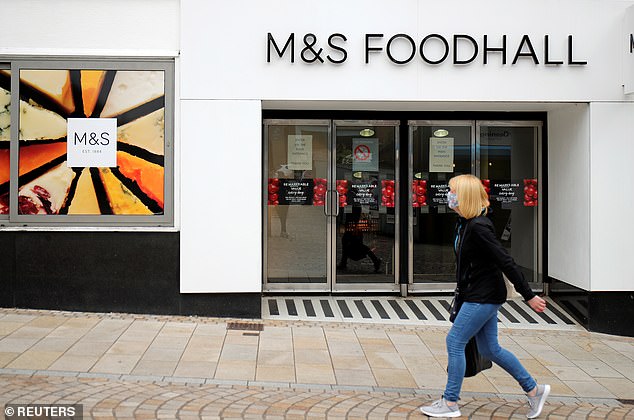[ad_1]
Many moons ago, on a working trip to Japan, I requested an interview with one of the country’s most successful food retailers, 7-Eleven.
The boss of the giant convenience stores group agreed – on one condition: that I share with him the secrets of Marks & Spencer’s food business, which he considered the finest in the world.
Rather than trying out my Sherlock Holmes sleuthing skills to break into the retailer’s kitchens or bribe its chefs, I took the honest approach, explaining my predicament to the M&S chiefs.
Within days I was invited to spend a day with the food quality control team, then based at its Baker Street HQ, where the testing and tasting rooms were as spick and span as any laboratory.
The technical staff were exceptional, going through every detail of the food process, from the welfare of its animal sources to the ingredients being used, always scrupulously fresh and without additives wherever they could.
They also explained how quality was the driving force of its food business, a culture that went back to 1948 when the retailer was the first in the UK to appoint a food quality specialist – Nathan Goldenberg – who in his 40-year career never relented in his pursuit of the best food.

Investment: M&S currently has 230 full-line food shops and 324 food halls, many of which are due to be upgraded
And his legacy lives on. The group was the first to provide customers with fresh, chilled chicken in 1960, the first to introduce sell-by dates, the first to use only free-range eggs in food products and the first to remove hydrogenated fats from meals.
As I relayed to the 7-Eleven chief, when we eventually met, the secrets were maybe not so secret after all: quality above all. The approach has served it well.
M&S’s food business is booming and now the stores group is to build its biggest state-of-the-art food distribution centre in Northamptonshire, next to the Daventry rail freight terminus, providing it with an extensive network of transport links.
The highly automated depot, due to open in 2029, is a big investment: the 1.3m square foot centre will cost £340million, creating 1,000 permanent jobs and 2,000 during the construction.
Earlier this year, M&S announced another big new distribution centre, at Avonmouth in Bristol.
And Alex Freudmann, managing director of the food business, has ambitions to double food sales, by opening bigger and fresher stores, and updating existing ones.
The new centre will help do so, he says, by modernising the supply chain, helping turn M&S into a place for the weekly shop rather than the occasional one.
To date, the retailer has 230 full-line food shops and 324 food halls, many of which are to be upgraded.
In the race to compete at the posher end of the market, M&S is catching up with Waitrose, whose managing director, James Bailey, has just stepped down.
After five years running the stores, Bailey leaves behind record customer numbers and strong sales growth.
Yet the battle at the top end of the market is every bit as fierce as it is among discounters like Aldi and Lidl, especially with food inflation running amok and customers seeking out value as well as quality.
Market share figures are notoriously fickle, but the latest from market research and consumer insight firm Nielsen IQ, for August, show the two are running neck and neck.
M&S has around 3.7 per cent compared with Waitrose, which has 329 stores and 65 small ones, at 3.8 per cent, down on three years ago.
But the tide may be turning. M&S has seen food sales grow at a higher rate comparatively to all other supermarket groups – sales last year jumped 8.6 per cent to £9billion – not bad in such a tough market.
With the cyber attack out of the way, this could be the time for another nibble at the retailer’s shares.
WH Smith disaster
Well, that went well! WH Smith sold off its UK high street stores earlier this year to focus on what it calls being a global travel retailer.
Now it finds a multimillion-pound accounting error in its North American business, overstating profits by £30million.
The shares said it all, plunging more than 40 per cent, wiping more than £500million off its value.
There’s almost poetic justice to WH Smith’s latest mishap: if you can’t run a good, 200-year-old business nationally, why should you be able to do so globally?
DIY INVESTING PLATFORMS

AJ Bell

AJ Bell
Easy investing and ready-made portfolios

Hargreaves Lansdown

Hargreaves Lansdown
Free fund dealing and investment ideas

interactive investor

interactive investor
Flat-fee investing from £4.99 per month

InvestEngine

InvestEngine
Account and trading fee-free ETF investing
Trading 212
Trading 212
Free share dealing and no account fee
Affiliate links: If you take out a product This is Money may earn a commission. These deals are chosen by our editorial team, as we think they are worth highlighting. This does not affect our editorial independence.
[ad_2]
This article was originally published by a www.dailymail.co.uk . Read the Original article here. .

